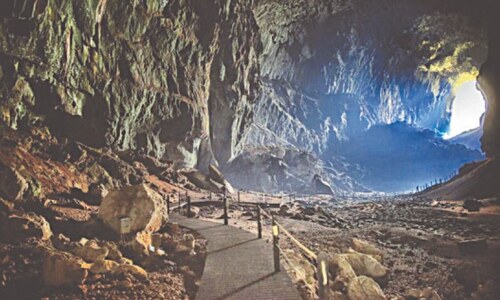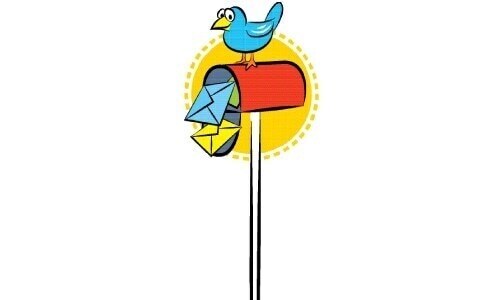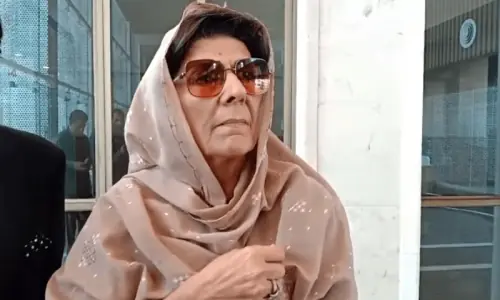
Choosing subjects to study and career paths to follow is a daunting task, for both students and their parents. This is because these decisions are required to be taken at an age when kids aren’t even sure about what they want to have for dinner. But these tough choices need to be made, sometimes as early as grade eight, for school children in Pakistan particularly.
I remember I didn’t know what I wanted to study until I was well into my honours degree, when I realised that I was on the right track. And it was after two miserable but short stints at jobs I hated doing, that I finally landed up with my calling in life. And I guess I have been lucky, as others don’t get to study what they really understand and enjoy, and take up careers they are passionate about.
lucky, as others don’t get to study what they really understand and enjoy, and take up careers they are passionate about.
So how to avoid getting lost in the labyrinth of subjects and career paths, and losing all focus of what we really want to do? The way out is tricky and tedious, unless you are lucky enough to be blessed since Kindergarten with a clear vision of where you will be at 23.
In Pakistan, students have to choose their field of study as early as class eight or nine, and the choices they have are very limited — pre-engineering, pre-medical, commerce and arts. A student simply cannot pick a few subjects from each of these groups as there can be no overlaps. There are a few optional choices for O and A Level students, but that too is in the form of additional subjects besides these groups of subjects.
While we cannot change the whole system, nor can we risk ending up with the wrong set of subjects in school and college, what we can do is to become better informed about what the various subjects being offered in school and colleges entail and what careers do they lead towards.
The interesting aspect of this is that most people know a lot about science and STEM (stands for science, technology, engineering, and math) subjects but are totally clueless about the other branches of study. This is because science generally leads to the more lucrative career options and science students are considered to be the more intelligent ones, and everyone wants this tag. Both these things are not really true, but the perceived notions linked to medicine and engineering offering the best paying jobs makes every parent wanting their child to study for a degree in these two only. Commerce has been giving medicine and engineering a tough competition these days though.
It is time to encourage a change in approach to studies and careers. We have been focusing so hard on studying for degrees that are in demand that we don’t realise that a promising career can be in any field — after all, doctors and engineers are not the only professionals in the world. There are so many other jobs and positions to be filled to make the world run smoothly. While what these jobs and professions are is a discussion that needs to come later, right now I would like to explore some fields of study besides science or STEM subjects, that a student can opt for. I am talking about the academic disciplines of humanities, social sciences.
Going deeply into these and the careers they lead is a long tale, which we will share with you in bits and pieces in the future issues of this magazine, so that you can absorb and digest them better, and may become motivated enough to embark on a journey of research and discussions of your own. For now, I would like to give an introduction of these two academic disciplines.
Humanities
The Oxford Dictionary describes humanities as “literature, language, history, philosophy, and other subjects that are not a science, or the study of these subjects.”
Wikipedia explains it as such: “Humanities are academic disciplines that study aspects of human society and culture .... Today, the humanities are more frequently contrasted with natural, and sometimes social, sciences as well as professional training.”
In short, we can say that humanities is “any academic discipline that studies human culture, literature, philosophy, language, etc,” and it involves a philosophical, critical and analytical approach. Subjects such as law, history, ancient languages, modern languages, philosophy, religion, and visual/performing arts come under humanities. These are actually subjects that we study in one form or the other at school from the beginning.
These subjects are important as they encourage critical thinking, historical consciousness and lead to better and more democratic societies. The insight gained from the study of these subjects, which look into things that make us humans, has had great impact on society as a whole.

Social sciences
As for social science, the clue is in the name, it’s a scientific study of human society, culture and social relationships. The Cambridge Dictionary defines it as, “the study of society and the way people live.”
Social science subjects include, but are not limited to, the following: anthropology, archaeology, communication and media studies, education, economics, management, business studies, history, human geography, law, criminology, linguistics, political science, psychology, public health, social work and sociology.
Sociology is considered the original ‘science of society’ and so the term social science is also sometimes used to refer to sociology.
Some experts consider that social sciences are part of humanities, though humanities focus on things in a more philosophical manner while social science uses a scientific approach to study the human relationship with respect to economics, politics, structure of the society and its functioning.
Is all this sounding too confusing and academic? I can understand as I too felt the same when I recently embarked on the journey of self-educating myself about what the often-used terms humanities and social sciences mean. Maybe not right now, but soon it will help you in knowing better what you can do and want to do in terms of subjects to study.
Coming back to social sciences, you will find that some subjects such as history and language are also considered to be in humanities and social sciences both. There are overlaps and similarities in both these broad disciplines and the way to tell one apart from the other is to look into their differences. The approach/process used in humanities is mainly by observation, inference, delineation and description. On the other hand, social sciences involve observation, hypothesis, survey and data collection (replacing experiment) and conclusion — basically a scientific approach.
In recent years, job prospects for students with social science degrees has improved, they don’t have to be just teachers and social workers. In a report on this, Prof James Wilsdon, Director of Research and Innovation, University of Sheffield, disclosed. “It’s time to banish any lingering myths about the value of a social science degree. Our report shows that employers in the public and private sectors are queuing up to hire social science graduates.”
He also added, “Social science degrees encourage skills of analysis, interpretation and communication, which employers need.”
So this was a brief introduction to two academic areas that have evolved in the last century, leading to two terms ‘humanities’ and ‘social sciences’ being used so much these days in place of the good old ‘arts’ that was meant to refer to anything that was not science. Hope this will make you see what you study at school in a different light and help you to make up your mind about what you really want to do in life. Good luck!
Published in Dawn, Young World, November 3rd, 2018






























